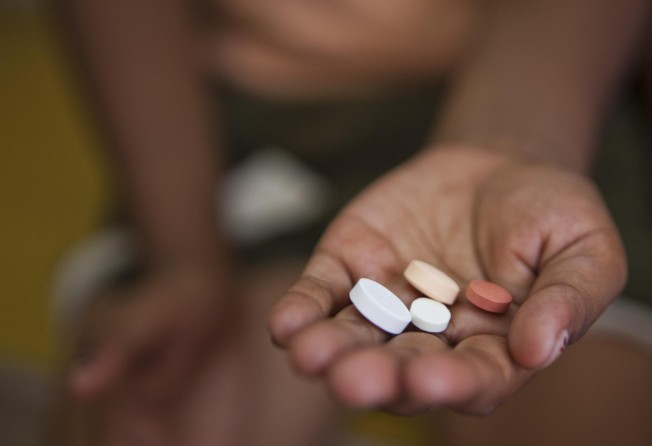Indian children prescribed wrong medication for diarrhoea and pneumonia

Very few health care providers in rural India know the correct treatment for children suffering from diarrhoea and pneumonia - and even when they do, they prescribe the wrong drugs.
This is the shocking finding of a recently published study by Manoj Mohanan, a professor at Duke University's Sanford School of Public Policy. It throws fresh light on why so many young Indian children die of these two ailments, which are responsible for a third of deaths of children under five in the country. In 2013, 300,000 Indian children died from pneumonia and diarrhoea.
"We know from previous studies that providers in rural settings have little medical training and their knowledge of how to treat these two common and deadly ailments is low," Mohanan says.
"Eighty per cent in our study had no medical degree. But much of India's rural population receives care from such untrained providers, and very few studies have been able to rigorously measure the gap between what providers know and what they do in practice."
The study, which appeared in the February issue of the journal JAMA Paediatrics, involved 340 health care providers in the eastern state of Bihar. The state has an infant mortality rate of 55 per 1,000 live births, the highest in the country.
Researchers began by asking providers how they would diagnose and treat these conditions.
They showed very low levels of knowledge about diarrhoea and pneumonia - not surprising given that few were trained doctors - yet when they talked about hypothetical cases, 72 per cent gave the right answer about treatment.
They said they would prescribe oral rehydration salts, which are the gold standard - low-cost and life-saving.
Later, dummy patients presenting the same symptoms as the ones discussed in the interviews with the care providers showed up at their clinics. Only 17 per cent of health care providers prescribed the salts - along with other unnecessary or harmful drugs.
In practice, none of the providers gave the correct treatment of only oral rehydration salts, with or without zinc, and no other potentially harmful drugs. Instead, almost 72 per cent of providers gave antibiotics or potentially harmful treatments without the salts.
Although the study was restricted to Bihar, Mohanan believes the results can probably be applied broadly to much of rural India.
At a health clinic in Nizamuddin East in the Indian capital New Delhi, low-income mothers bring their children to see Dr Akhilesh Rao, a private paediatrician who opens his clinic to the poor for a free consultation three days a week.
These children live in the nearby slum where conditions are highly unsanitary. They defecate out in the open and play near a sludge-laden pond where cows, goats and pigs forage for scraps. This lack of sanitation makes diarrhoea a common ailment.
"Pneumonia is also a problem as these children have low levels of zinc because of their poor diet. Their parents cannot afford to give them meat or dairy products," says Rao.
Sometimes, the relatives of this community who live in villages on the outskirts of New Delhi come to his clinic with their sick children.
"They are usually badly dehydrated. They come with sunken eyes, a high temperature and often haven't passed urine for many hours. Their distress could have been avoided if their local doctor had given them oral rehydration salts," says Rao.
Children weakened by frequent bouts of diarrhoea are more vulnerable to malnutrition and opportunistic infections such as pneumonia.
At present, the only tentative and partial explanation he can offer as to why the wrong treatments are prescribed is perhaps greed.
"It could be that a lot of them earn money from selling drugs - because of a missing market for medical consultations in rural settings, where patients might be willing to pay for 'treatment' but not for medical advice," he says.
Mohanan and his team are carrying out studies in order to understand why providers who know they shouldn't be prescribing antibiotics for conditions such as simple diarrhoea continue to do so.
For Dr Subhash Arya, paediatrician and emeritus consultant at B.L.K. Super Speciality Hospital in north Delhi, the results of the findings are not a surprise. Although none of the dummy patients in the Duke study asked the doctor for antibiotics or strong drugs, his experience suggests otherwise.
"Uneducated parents often feel that oral rehydration salts, to be mixed in water, don't seem like value for money. Without a pill or an injection, many poor people feel the doctor is cheating them," says Arya.
The government has been working with the WHO and Unicef but issues of poor sanitation in rural areas and lack of awareness about the use of salts remain stubbornly intractable.